Value Change

How is the value of carbon credits determined ?
Carbon credits are a valuable tool in the fight against climate change. Their value is determined by supply and demand, quality of the project used to generate them, and market conditions. Supply and demand can be influenced by government regulations, public opinion, and technological advancements. The quality of a carbon offset project can be influenced by verification and certification, additionality, and permanence. Market conditions such as economic growth, political stability, and global events can also impact the value of carbon credits.

How are carbon credits traded and what is their market value ?
The article discusses the trading of carbon credits, which are tradable permits allowing holders to emit certain amounts of greenhouse gases. It explains how carbon credits are traded and their market value, outlining steps in their creation, verification, issuance, trading, and retirement. It also notes that the market value of carbon credits varies based on project type, location, and demand for offsets.

How do private equity firms value companies ?
Private equity firms value companies using various methods, includingPrivate equity firms value companies using various methods, including, discounted cash flow ( These approaches help them assess the company's financial health, market position, growth potential, and risks to make informed investment decisions.
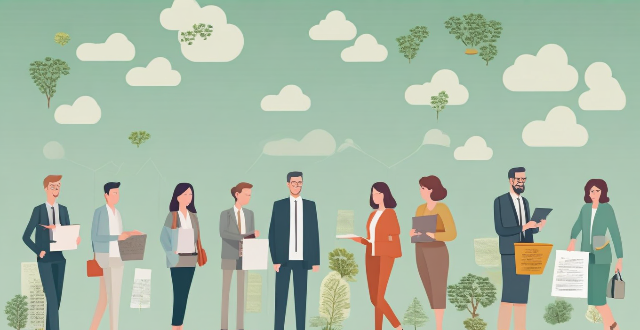
How can we measure the value of ecosystem services ?
The article discusses various methods to measure the value of ecosystem services, which are benefits humans derive from ecosystems. These include provisioning, regulating, cultural, and supporting services. Measuring their value is crucial for informed decisions about management and conservation. Methods include direct market valuation, indirect market valuation, revealed preference methods, avoided cost method, replacement cost method, and benefit transfer method. By using these techniques, policymakers and managers can make informed decisions about resource allocation for ecosystem conservation and restoration.
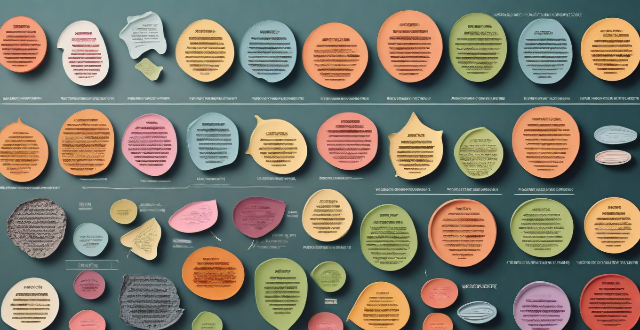
How does climate change impact the nutritional value of crops ?
Climate change is affecting the nutritional value of crops by altering CO2 levels, temperature fluctuations, and water availability. Elevated CO2 concentrations can lead to nutrient dilution in staple crops like wheat, rice, and soybeans. Temperature extremes cause protein denaturation and interfere with enzyme function, reducing nutrient content. Water stress from drought or flooding impairs nutrient uptake and synthesis. Adaptation strategies include breeding resilient crop varieties, implementing efficient irrigation systems, and using protective structures against extreme temperatures. By addressing these challenges, it's possible to maintain crop nutrition amidst climate change impacts.

How can I determine the value of a second-hand item before purchasing it ?
When considering purchasing a second-hand item, itWhen considering purchasing a second-hand item, it its value to ensure you' it's important to determine its value to ensure you're getting a fair deal. Here are some steps to help you assess the value of a pre-owned item: 1. Research the market price by checking online marketplaces, consulting auction houses, and reading reviews and forums. 2. Evaluate the condition of the item by inspecting for damage, considering age and obsolescence, and testing functionality. 3. Negotiate with the seller by making an offer based on your research and evaluation, being prepared to walk away if necessary, and asking for more information if needed.

How can I make sure I'm getting the best value for my money when shopping ?
When it comes to shopping, ensuring you're getting the best value for your money is crucial. Here are some tips to help you make informed decisions and get the most out of your purchases: 1. Research Before You Buy: Read reviews, compare prices, and check for sales and discounts. 2. Set a Budget: Determine your needs, prioritize items, and allocate funds accordingly. 3. Choose Quality Over Quantity: Invest in durable items and consider warranties and guarantees. 4. Take Advantage of Loyalty Programs: Join reward programs and use credit card rewards wisely. 5. Don't Forget About Return Policies: Understand store policies and keep receipts organized. By following these tips, you can ensure that you're getting the best value for your money when shopping. Remember to take your time, do your research, and make well-informed decisions to get the most out of your purchases.

What are the potential risks of climate change for the insurance sector ?
Climate change poses significant threats to the insurance sector, including increased natural disasters, changes in liability exposures, property value fluctuations, and regulatory/legal changes. Insurers must adapt by assessing risks, updating policies, and collaborating with governments to create effective strategies.
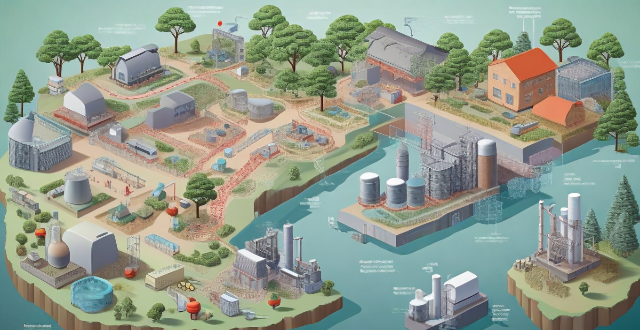
How is climate change affecting the insurance industry ?
Climate change is significantly impacting the insurance industry by increasing natural disasters, altering liability exposures, and prompting regulatory changes. Insurers must adapt to these challenges by updating risk assessment models, complying with new regulations, shifting investment portfolios towards sustainability, and innovating products. This adaptation is crucial for insurers' financial resilience and their role in aiding societal adaptation to climate change.

What are the risks associated with investing in financial products ?
Investing in financial products can be a great way to grow your wealth, but it's important to understand the risks involved. Here are some of the key risks associated with investing in financial products: 1. Market risk refers to the possibility that an investment may lose value due to changes in market conditions. 2. Credit risk is the risk that a borrower or counterparty will fail to meet its obligations under a financial contract. 3. Interest rate risk is the risk that changes in interest rates will negatively impact the value of an investment. 4. Inflation risk is the risk that inflation will erode the purchasing power of your investments over time. 5. Liquidity risk is the risk that you may not be able to sell your investment quickly without affecting its price. 6. Currency risk is the risk that fluctuations in exchange rates will negatively impact the value of your investments. 7. Concentration risk is the risk that your portfolio is too heavily invested in a single asset class, sector, or geographic region. 8. Tax risk is the risk that changes in tax laws or regulations will negatively impact the after-tax returns of your investments. 9. Fraud risk is the risk that you may be victimized by fraudulent activities related to your investments.

What is the role of education in addressing climate change ?
Education is pivotal in addressing climate change by empowering individuals with knowledge, skills, and attitudes necessary to understand and combat the issue. It cultivates a culture of sustainability and resilience, preparing future generations to face the challenges posed by a changing climate. Education raises awareness about the science behind climate change, promotes environmental literacy, and fosters a fundamental understanding of the complex interactions between human activities and the environment. By integrating climate change into school curricula and higher education programs, students learn about the importance of biodiversity, renewable energy sources, and sustainable practices, equipping them with the tools to make informed decisions and adopt eco-friendly behaviors. Education encourages critical thinking and problem-solving skills, which are essential for finding innovative solutions to mitigate and adapt to climate change. Students are encouraged to engage in projects and research that promote sustainability and environmental conservation. Education can inspire a sense of responsibility towards the environment, encouraging individuals to take active roles in protecting it. This can lead to community-based initiatives, such as tree planting, waste reduction campaigns, and advocacy for environmental policies. Educated citizens are better equipped to participate in democratic processes, ensuring that climate change is addressed through effective policies and regulations. They can hold governments and corporations accountable for their environmental impacts and push for systemic changes. Education is vital for developing a green economy by creating jobs in renewable energy, sustainable agriculture, and other environmental sectors. It prepares the workforce for industries of the future, where sustainability is a core value. Education promotes cross-cultural understanding and cooperation, which is essential for addressing a global issue like climate change. International exchange programs and collaborations can share best practices and technologies across borders. Education is crucial for building the capacity of communities disproportionately affected by climate change, enabling them to adapt and thrive despite adverse conditions. It ensures that everyone has access to information and resources needed to cope with climate-related challenges. In conclusion, education is a powerful tool in the fight against climate change, informing and empowering individuals to become agents of change.

How does climate change affect the quality and availability of drinking water ?
This article discusses the various ways in which climate change affects the quality and availability of drinking water, including changes in precipitation patterns, melting glaciers, sea level rise, temperature increase, extreme weather events, and wildfires. It also explores adaptation strategies such as water conservation measures, infrastructure improvements, protection of water sources, and policy and regulation to mitigate these risks and ensure a sustainable water future for all.

How do I avoid customs fees when buying from overseas ?
When purchasing goods from overseas, it's common to encounter customs fees, which can significantly increase the total cost of your purchase. However, there are several strategies you can use to minimize or avoid these fees altogether. Here's a detailed guide on how to do so: ## Understanding Customs Fees Customs fees are taxes imposed on imported goods by the government of the destination country. These fees are typically based on the value of the items being imported and may vary depending on the type of product and its classification under international trade regulations.### Key Points to Remember: - **Research Regulations**: Familiarize yourself with the customs regulations of the country you're importing goods into.- **Check Import Restrictions**: Some items may be prohibited or have specific requirements.- **Know the Thresholds**: Many countries have de minimis thresholds below which no customs duties are charged.## Strategies to Minimize Customs Fees### 1. Declare Lower Value Some countries offer a de minimis threshold, meaning that if the value of the goods is below a certain amount, no customs fees will be charged. Be cautious with this approach, as undervaluing goods can be considered a violation and may result in penalties.### 2. Use a Package Forwarding Service Package forwarding services allow you to ship your purchases to an intermediary address before sending them on to you. This can help by: - **Consolidating Packages**: Reducing the number of shipments can lower handling fees.- **Repackaging**: To make the package look less valuable.- **Value Declaration**: Some services may adjust the declared value to stay within de minimis limits.### 3. Shop at Online Stores That Offer Free International Shipping Many online retailers offer international shipping with customs fees included in the price or have agreements that reduce these fees.### 4. Consider Using an Import Broker Import brokers specialize in facilitating the clearance of goods through customs and can provide expert advice on minimizing fees. They have knowledge of customs laws and can assist with proper classification and valuation of goods.### 5. Check for Tax-Free Shopping Options Some countries offer tax-free shopping for tourists, which can be a way to avoid customs fees when bringing in goods personally.## Examples of Goods That May Incur Lower Customs Fees - **Personal Use Items**: Clothing, toiletries, and other personal use items often have lower customs fees.- **Unboxed or Opened Electronics**: Sometimes unboxed or opened electronics are subject to reduced customs fees.- **Gifts**: Sending items as gifts can sometimes result in lower customs fees, but this must be declared properly.## Tips for Successful Importing - **Keep Records**: Save all receipts and documentation related to your purchases.- **Stay Informed**: Customs policies can change, so stay updated on the latest regulations.- **Be Honest**: Always declare the true value and nature of your goods to avoid legal issues. By following these strategies and tips, you can effectively minimize or avoid customs fees when buying from overseas. However, always remember to comply with the laws and regulations of both the exporting and importing countries to ensure a smooth importing process.

How do cultural beliefs and values influence attitudes towards climate change ?
Cultural beliefs and values play a significant role in shaping individuals' attitudes towards climate change. These cultural factors include worldviews, religious beliefs, social norms, historical experience, and education and awareness levels. Understanding these cultural influences can help promote actions that address climate change while respecting diverse perspectives.

How do urbanization and land use change affect ecosystem services ?
The text discusses the impact of urbanization and land use change on ecosystem services, including provisioning, regulating, cultural, and supporting services. It highlights how these changes can lead to decreased water supply, reduced food production, negative effects on climate regulation and flood control, loss of recreational opportunities and cultural values, and disruption of soil formation and nutrient cycling. Mitigation strategies such as green infrastructure, sustainable urban planning, and land stewardship are suggested to minimize these negative impacts and maintain essential ecological functions.
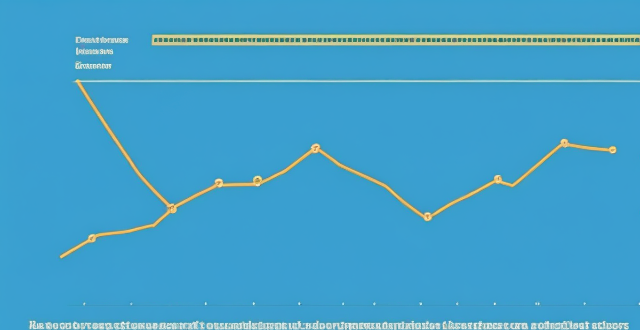
How do economists assess the costs and benefits of climate change negotiations ?
Economists use a cost-benefit analysis framework to assess the economic implications of climate change negotiations, considering various factors and uncertainties to inform policymakers about the economic implications of different strategies.

What are the ethical implications of climate change and how can we address them ?
Climate change has significant ethical implications affecting nature, justice, and future generations. The discussion explores these dimensions and suggests strategies to address them, including respecting nature, ensuring intergenerational equity, promoting justice in climate action, and implementing policy initiatives, technological innovations, and social change to mitigate climate impacts.

How do I maximize the value of coupons and promotional codes ?
Coupons and promotional codes are a great way to save money on your purchases. Here are some tips: 1. Use Them Wisely: Combine coupons and stack promotions for maximum savings. 2. Plan Ahead: Check expiration dates and plan your shopping trips accordingly. 3. Be Strategic: Use coupons on high-value items and stock up on essentials when they go on sale. 4. Sign Up for Rewards Programs: Join loyalty programs and follow brands on social media for exclusive offers.

What is the relationship between circular economy policies and climate change mitigation ?
The circular economy (CE) is an economic system that promotes sustainable development by reusing and recycling materials, minimizing waste, and reducing the need for new raw material extraction. CE policies contribute to climate change mitigation by decreasing greenhouse gas emissions, enhancing energy efficiency, supporting renewable energy, promoting sustainable practices, creating green jobs, and encouraging systemic changes towards sustainability. Challenges to implementing CE policies include modifying economic incentives, establishing supportive regulations, advancing technological innovation, and changing consumer behavior.
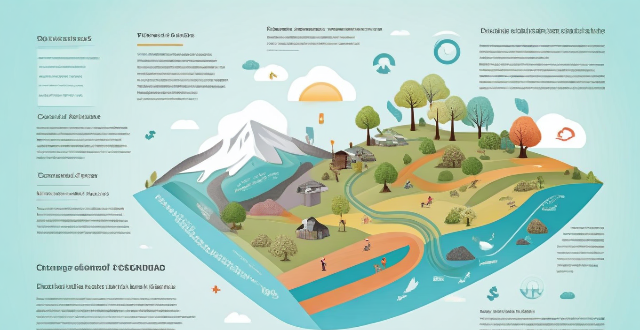
How does climate change affect education ?
Climate change impacts education through extreme weather events, health issues, food insecurity, economic challenges, social changes, and environmental degradation. These effects necessitate collaboration between educators and policymakers to develop resilient strategies for adapting to climate change.

How might climate change affect long-term investment returns and what should investors do about it ?
Climate change is a global phenomenon that has the potential to significantly impact long-term investment returns. Here are some ways in which climate change could affect investments: 1. Impact on Asset Prices: Climate change can affect the prices of various assets, including stocks, bonds, and real estate. For example, companies that rely heavily on fossil fuels or are located in areas vulnerable to climate-related risks may see their stock prices decline. On the other hand, companies that focus on renewable energy or have strong sustainability practices may see their stock prices increase. 2. Changes in Industry Landscape: Climate change can also lead to shifts in the industry landscape. Industries that are heavily reliant on natural resources, such as agriculture and fishing, may be negatively impacted by climate change. Conversely, industries that focus on sustainability and renewable energy may experience growth. 3. Regulatory Risks: Governments around the world are implementing policies to combat climate change, which could impact certain industries. For example, regulations aimed at reducing carbon emissions could negatively impact companies in the fossil fuel industry. Investors need to be aware of these regulatory risks and how they might impact their investments. 4. Physical Risks: Climate change can also pose physical risks to investments. For example, extreme weather events like hurricanes and floods can damage property and infrastructure, affecting the value of real estate investments. Similarly, droughts and other climate-related events can impact agricultural yields, affecting the profitability of farming-related investments. Given the potential impact of climate change on investments, investors should take steps to mitigate these risks. Here are some strategies that investors can consider: 1. Diversify Your Portfolio: Diversification is always a smart strategy when it comes to investing, and this holds true when considering the impact of climate change. By diversifying your portfolio across different asset classes and industries, you can reduce your exposure to any one sector that might be negatively impacted by climate change. 2. Invest in Sustainable Companies: Investing in companies that prioritize sustainability and have strong environmental practices can help mitigate the risks associated with climate change. These companies are often better positioned to adapt to changing market conditions and may even benefit from shifts towards more sustainable practices. 3. Consider Impact Investing: Impact investing involves investing in companies or funds that have a positive social or environmental impact, in addition to financial returns. This can be a good way to align your investments with your values and support sustainable businesses that are working to address climate change. 4. Stay Informed About Climate Risks: Finally, it's important for investors to stay informed about the potential risks that climate change poses to their investments. This includes staying up-to-date on government policies related to climate change and monitoring how these policies might impact different industries and asset classes.
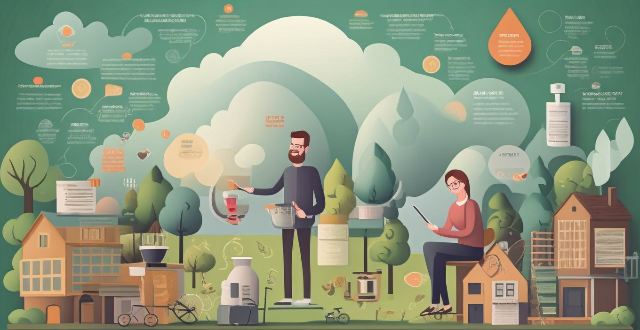
What are some innovative solutions for mitigating the effects of climate change on biodiversity ?
Climate change poses a significant threat to biodiversity, but there are several innovative solutions that can help mitigate its effects. These include protecting and restoring habitats, promoting sustainable land use practices, encouraging biodiversity-friendly farming practices, supporting indigenous communities, investing in research and technology, and promoting education and awareness. By implementing these strategies, we can create more resilient ecosystems that are better able to withstand the impacts of climate change.

Are there any restrictions on how I can use my credit card rewards ?
Using credit card rewards can save money and add value to purchases, but it's crucial to understand potential restrictions. Restrictions may include limited redemption options, expiration dates, minimum thresholds, blackout dates/capacity controls for travel expenses, transfer partnership requirements, and tax implications. By understanding these limitations, you can maximize the value of your rewards while avoiding surprises.

How is climate change affecting global temperatures ?
Climate change, largely due to human activities like burning fossil fuels and deforestation, is causing a rise in global temperatures. This has led to more frequent and severe extreme weather events, melting ice caps, ocean warming and acidification, changes in precipitation patterns, impacts on biodiversity, and challenges for agriculture. The situation calls for immediate action to reduce greenhouse gas emissions and adapt to the changing climate.
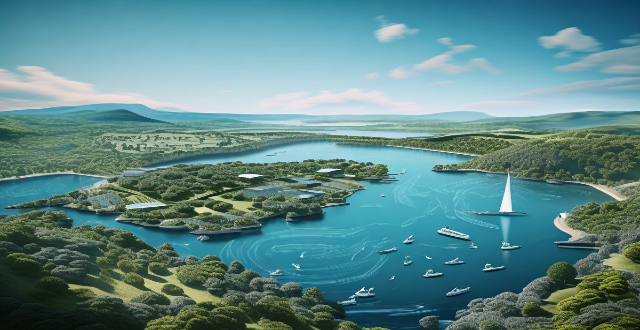
How can environmental ethics help address climate change ?
Environmental ethics, a branch of philosophy, examines the moral relationship between humans and nature. It helps in addressing climate change by recognizing nature's intrinsic value, promoting stewardship and sustainability, encouraging intergenerational equity, and fostering global cooperation.

How does climate change impact national security ?
Climate change impacts national security in various ways, including economic disruption, social unrest, and political instability. To mitigate these effects, it is essential to take action at both the national and international levels, such as reducing greenhouse gas emissions, investing in renewable energy sources, and adapting to the inevitable changes brought about by climate change.
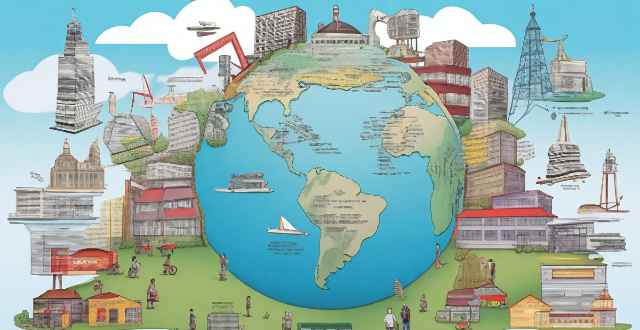
How can international education help address global issues like climate change and inequality ?
International education plays a crucial role in addressing global issues by promoting cross-cultural understanding, enhancing global citizenship, building networks and partnerships, promoting sustainable development through curriculum changes and research initiatives focused on sustainability principles, and encouraging collaboration among individuals and organizations from around the world.

What are the taxes and duties involved in global shopping ?
Global shopping popularity has grown, but understanding the taxes and duties involved is crucial for informed purchasing decisions. Types of taxes and duties include import duty, value added tax (VAT), customs clearance fee, and excise tax. To calculate these charges, one needs to know the product category, country of origin, value of goods, and local tax laws. The responsibility for payment can be on either the seller or the buyer, depending on the transaction terms. To avoid unexpected charges, research before buying, ask for a full cost breakdown, and consider using a package forwarding service.

What is the difference between term life insurance and whole life insurance ?
Difference between term life insurance and whole life insurance: - Term life insurance is temporary coverage, no cash value, renewable, and affordable. - Whole life insurance is permanent coverage, accumulates cash value, has level premiums, and is more expensive.